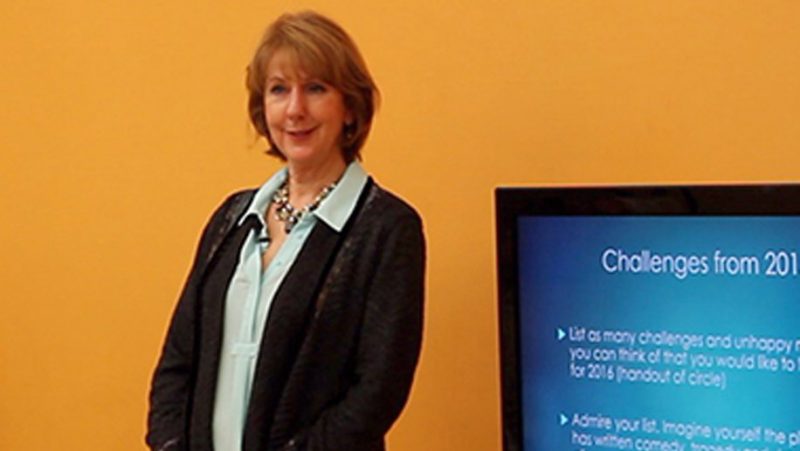The Medium is the Message: Conversations with a Corporate Intuitive
Dr. Therese Rowley offers an arsenal of practical and paranormal tools for dealing with abnormal times in business
January 11, 2021


Chicago-based corporate thought-leader and intuitive Dr. Therese Rowley has spent time at the top of the corporate ladder as management consultant and strategic planner for some of the biggest companies in the US, including Kearney, Inc. and AT&T. Armed with an MBA and PhD among other degrees and certifications from prestigious institutions, she now uses her learned skills and inborn talents to coach business leaders, CEOs and entrepreneurs as they seem to break through barriers seen and unseen toward remarkable success.
She has written blogs for The Huff Post, Medium and ChicagoNow.com about Conscious Business and Intuitive Leadership. Her media interviews include Dr. Mehmet Oz, Chicago’s NBC and ABC affiliates, and WLS and WGN Radio.
Business Traveler USA sat down with Dr. Rowley on the eve of this new year to find out what 2021 may have in store as well as what we can learn from the troubling times we are currently experiencing. For the sake of terminology, “Reading” is capitalized throughout.

BT: As you have known and seen your intuitive skills in action since you were young, how did you come to the notion of using your gifts as a tool for business, and integrating more conscious awareness into the corridors of corporate America?
DR. ROWLEY: When I took a college course in organizational psychology, I thought I’d died and gone to heaven. It is a discipline that studies, honors and enhances the human dynamic in business. As I used that discipline to facilitate large scale business change, I became aware that if I used my intuition to tune into the energy of a leader, a team or an organization, I would be more helpful in making space and skillful interventions for the emotional elements of the change process at the right time. That, in turn, would advance transformation rather than delay it.
When a facilitator of transformation, say for a business-wide technology implementation, ignores the human element or doesn’t deal skillfully with the emotions of the employees, those feelings come out sideways resulting in sabotage or other kinds of delays. I came to understand the facilitator as both the instrument of change and the lightning rod for the anger that advances the change process.
BT: What is the reception you get from business associates you talk to about consciousness and its place in business and industry?
DR. ROWLEY: First, it depends upon geography. I lived in Boulder, CO for a couple of years and then in the Bay Area for nine years, where mindfulness, intuition and meditation were researched and discussed in the late 80s and early 90s. By the early 2000s these methods were inculcated into work.
Chicago, where I next moved, is about 10-15 years behind the West Coast in its experimentation and openness to the creative side of the brain. Thankfully, now there are only a few places left where personal awareness is not seen as a critical part of leadership. A leader’s ability to self-reflect, acknowledge the truth and learn from mistakes, represent basic skills these days. A decade ago, the Wisdom 2.0 Conference in California included businesses like Google and eBay CEOs on the same panel with Zen Master Thich Nhat Hanh, a global spiritual leader and peace activist. By 2015 Google, Target and General Mills had mindfulness classes.
Having said that, it is only recently that more professionals know the term “intuitive coaching” in business. Two years ago, I told a gentleman I’d met at a reunion of a “Big Six” consulting firm where I worked many years ago, about my intuitive work. He said he understood, as he had six intuitives whose advice he used regularly. Those intuitives were working at a very basic level of prediction for his financial models’ success.
My work goes much deeper and is not as well understood. Some 98 percent of my clients are referred by other clients.
BT: Has that changed over the years for you – say, from skepticism to wide open reception? If so, what do you think accounts for that?
DR. ROWLEY: We now have evidence through:




